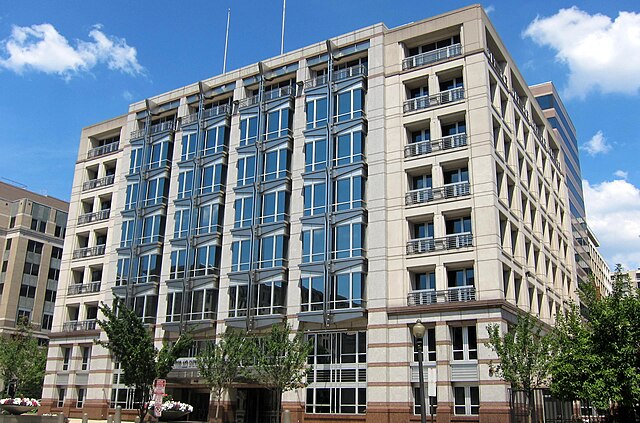The Priestley Medal is the highest honor conferred by the American Chemical Society (ACS) and is awarded for distinguished service in the field of chemistry. Established in 1922, the award is named after Joseph Priestley, one of the discoverers of oxygen, who immigrated to the United States of America in 1794. The ACS formed in 1876, spearheaded by a group of chemists who had met two years previously in Priestley's home.
Priestley Medal obverse
Priestley Medal reverse (awarded to Linus Pauling in 1984)
American Chemical Society
The American Chemical Society (ACS) is a scientific society based in the United States that supports scientific inquiry in the field of chemistry. Founded in 1876 at New York University, the ACS currently has more than 155,000 members at all degree levels and in all fields of chemistry, chemical engineering, and related fields. It is one of the world's largest scientific societies by membership. The ACS is a 501(c)(3) non-profit organization and holds a congressional charter under Title 36 of the United States Code. Its headquarters are located in Washington, D.C., and it has a large concentration of staff in Columbus, Ohio.
American Chemical Society headquarters in Washington, D.C.



